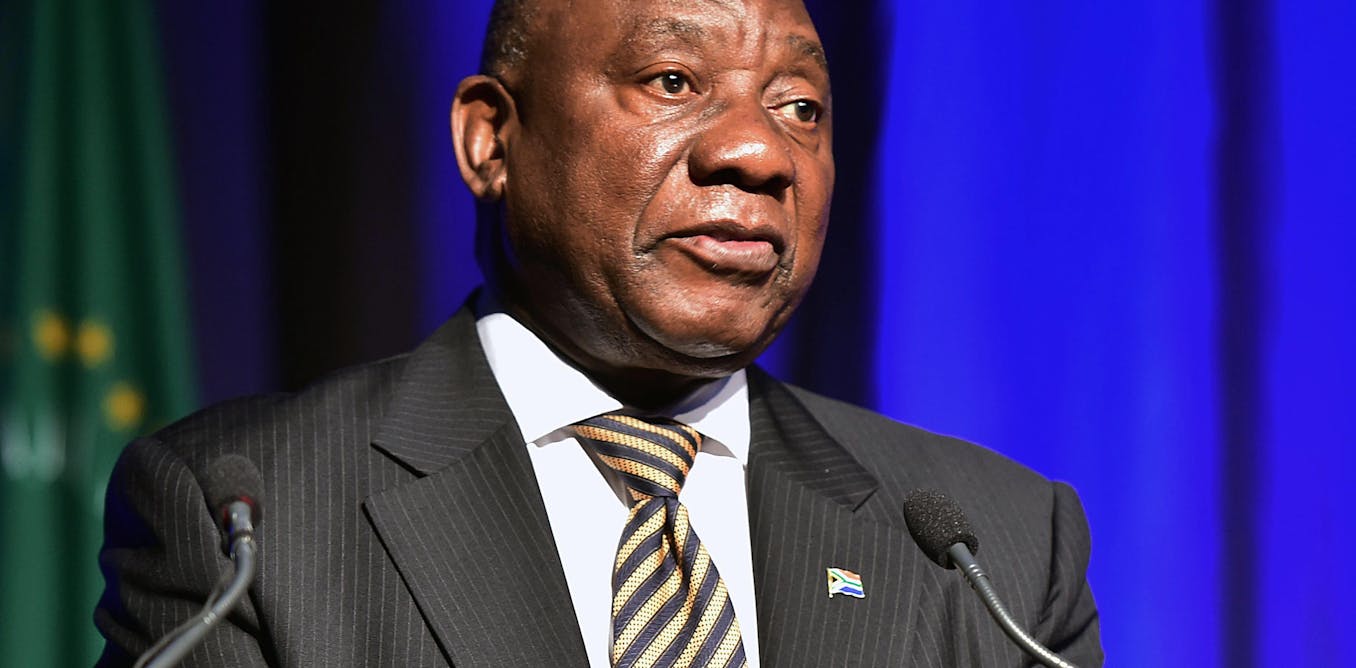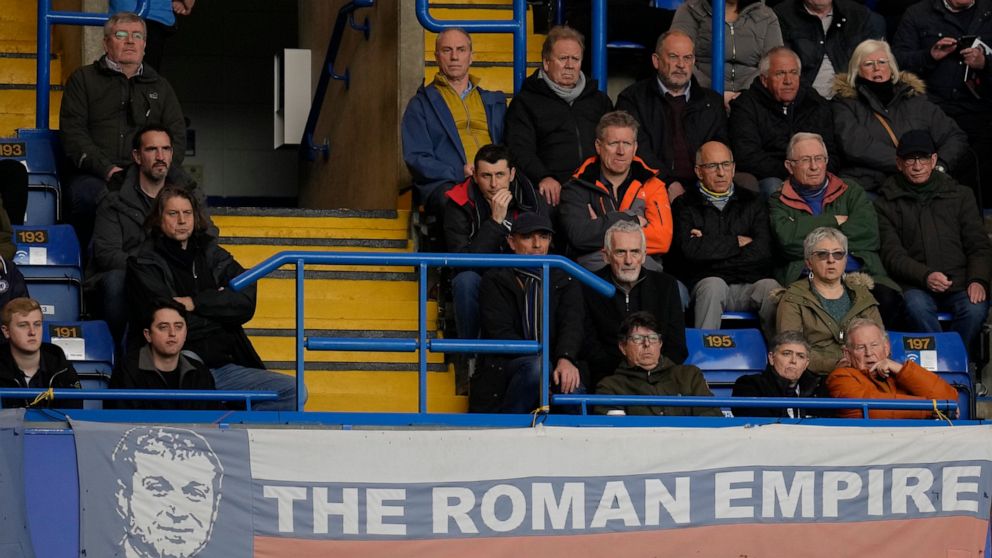- Joined
- Mar 30, 2016
- Messages
- 81,814
- Reaction score
- 20,427
- Location
- Chicago
- Gender
- Male
- Political Leaning
- Independent
“South Africa abstained in a vote in the United Nations General Assembly on the resolution condemning the Russian invasion of the Ukraine, and demanding their withdrawal.
The South African government has explained that it enjoys good relations with both Russia and the Ukraine; hence it abstained in the UN General Assembly vote condemning the Russian invasion.
“To summarise, the ANC remembers who were its allies during the Cold War, and who denounced it as “terrorists”. This has drowned the other considerations. This includes that South Africa, as a small country, depends on the UN charter principles opposing war and invasion to seize territory, and multilateralism to protect it from invasion by a great power.
“ The ANC and the former Soviet Union have a long history together. The first visit by an ANC leader to the Soviet Union was by Josiah Tshangana Gumede, one of the founding members of the ANC, in 1927. His visit was a spin-off of his attendance in Belgium of the League against Imperialism.
After the apartheid regime was banned the ANC in 1960 it received aid from the Soviet Union for its exiled mission in the fight to liberate South Africa from minority white rule. This aid exceeded that from the pan-African Organisation of African Unity- now the African Union - or anyone else.
It was only from the end of the 1970s that Scandinavian donations became higher than Soviet funding. But Scandinavian aid remained limited to peaceful aid only. Only the Soviet Union provided weapons and other military aid to the ANC’s armed wing, Umkhonto we Sizwe.
By 1988, sensing that victory over apartheid was coming, Moscow supplemented training in guerilla warfare with training in conventional warfare, including naval and air force training.
Historical links, such as these, were evident in the divide between African states during the UN General Assembly vote to condemn Russia’s invasion of the Ukraine.
Namibia, which is governed by Swapo, Angola, by the MPLA and Mozambique by Frelimo joined South Africa in abstaining.
Swapo, the MPLA, and Frelimo also received Soviet foreign aid during the 20th Century Cold War when they too were liberation movements fighting guerrilla wars.
By contrast, Botswana and Zambia voted to condemn the Russian invasion. Significantly, their ruling parties came to power peacefully, and did not have Russian alliances. This vote for the UN resolution condemning the Russian invasion and demanding its withdrawal, was also the position of 28 African Union members. Seventeen abstained.
Clearly, the liberation movements of Angola, South Africa, Namibia and Mozambique regard Russia as the inheritor and custodian of the Soviet Union history and traditions.“
Why then do the ANC, Swapo, MPLA, and Frelimo, and the South African Communist Party – the ANC’s governing alliance partner – continue to retain such bonds of deference to Putin’s anti-communist government?
One reason could be that Russia and those southern African governments have shared resentment of the international dominance of the North Atlantic Treaty Organisation (NATO), especially that of the US and the former colonial powers – the UK and French. This is regardless of the sea-change in party politics within the Kremlin.
The relationship between South Africa and the US, especially, has a complex history. Not least because US governments designated ANC leaders fighting the apartheid regime as terrorists. There is also memory of the CIA's unsavoury role in Africa.“

 theconversation.com
theconversation.com
I found this article really interesting, particularly since I hadn’t seen anyone else mentioning it anywhere here. As I said previously, I think people here often make the mistake of equating what people in NATO member countries think with what the world as a whole thinks, and that simply isn’t the case.
The South African government has explained that it enjoys good relations with both Russia and the Ukraine; hence it abstained in the UN General Assembly vote condemning the Russian invasion.
“To summarise, the ANC remembers who were its allies during the Cold War, and who denounced it as “terrorists”. This has drowned the other considerations. This includes that South Africa, as a small country, depends on the UN charter principles opposing war and invasion to seize territory, and multilateralism to protect it from invasion by a great power.
“ The ANC and the former Soviet Union have a long history together. The first visit by an ANC leader to the Soviet Union was by Josiah Tshangana Gumede, one of the founding members of the ANC, in 1927. His visit was a spin-off of his attendance in Belgium of the League against Imperialism.
After the apartheid regime was banned the ANC in 1960 it received aid from the Soviet Union for its exiled mission in the fight to liberate South Africa from minority white rule. This aid exceeded that from the pan-African Organisation of African Unity- now the African Union - or anyone else.
It was only from the end of the 1970s that Scandinavian donations became higher than Soviet funding. But Scandinavian aid remained limited to peaceful aid only. Only the Soviet Union provided weapons and other military aid to the ANC’s armed wing, Umkhonto we Sizwe.
By 1988, sensing that victory over apartheid was coming, Moscow supplemented training in guerilla warfare with training in conventional warfare, including naval and air force training.
Historical links, such as these, were evident in the divide between African states during the UN General Assembly vote to condemn Russia’s invasion of the Ukraine.
Namibia, which is governed by Swapo, Angola, by the MPLA and Mozambique by Frelimo joined South Africa in abstaining.
Swapo, the MPLA, and Frelimo also received Soviet foreign aid during the 20th Century Cold War when they too were liberation movements fighting guerrilla wars.
By contrast, Botswana and Zambia voted to condemn the Russian invasion. Significantly, their ruling parties came to power peacefully, and did not have Russian alliances. This vote for the UN resolution condemning the Russian invasion and demanding its withdrawal, was also the position of 28 African Union members. Seventeen abstained.
Clearly, the liberation movements of Angola, South Africa, Namibia and Mozambique regard Russia as the inheritor and custodian of the Soviet Union history and traditions.“
Why then do the ANC, Swapo, MPLA, and Frelimo, and the South African Communist Party – the ANC’s governing alliance partner – continue to retain such bonds of deference to Putin’s anti-communist government?
One reason could be that Russia and those southern African governments have shared resentment of the international dominance of the North Atlantic Treaty Organisation (NATO), especially that of the US and the former colonial powers – the UK and French. This is regardless of the sea-change in party politics within the Kremlin.
The relationship between South Africa and the US, especially, has a complex history. Not least because US governments designated ANC leaders fighting the apartheid regime as terrorists. There is also memory of the CIA's unsavoury role in Africa.“

History may explain South Africa's refusal to condemn Russia's invasion of Ukraine
The relationship between South Africa and the West, especially the US, has a complex history. Not least because the US designated those fighting the apartheid regime, as terrorists.
 theconversation.com
theconversation.com
I found this article really interesting, particularly since I hadn’t seen anyone else mentioning it anywhere here. As I said previously, I think people here often make the mistake of equating what people in NATO member countries think with what the world as a whole thinks, and that simply isn’t the case.


